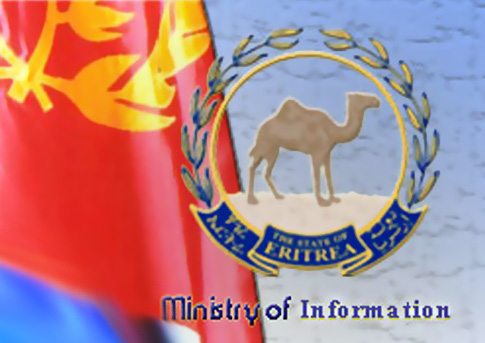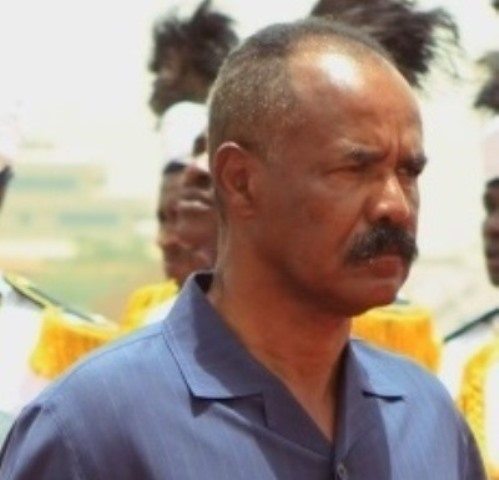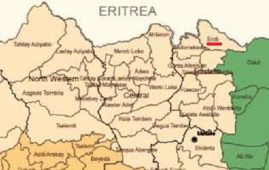Court orders defendants in Elias Kifle case to defend charges
The Federal Court ordered on Monday all five defendants in Elias Kifle et al case to defend the charges against them.
The defendants are: Elias Kifle, editor-in-chief of the Washington based Ethiopian Review, (being tried in absentia); Zerihun GebreGizabher, President of the Ethiopian National Unity Party; Wubeshet Taye, dep. Editor of the recently defunct Amharic-language weekly Awramba Times; Reeyot Alemu, a columnist at the Amharic-language weekly Feteh Newspaper and Firehiwot Kifle.
According to the Court ruling, Elias Kifle, who is being tried in absentia, has to defend four charges against him. Each of the rest of the defendants, who have been in detention since last June, shall defend three charges brought against them.
Noting that ‘the court has examined testimonies of nine prosecution witnesses, documentary evidences, audio and video recordings as well as defendants’ statements to police’, the presiding judge of Federal High Court third criminal bench ordered that the defendants shall answer the charges against them, according to the news from Walta.
Note that: Had the Court deemed the prosecution’s case insubstantial, the defendants would have been acquitted without further ado.
The defendants will present their defense on Dec. 21, 2011.
Previous hearings
On September, 7, 2011, the Federal Prosecutor filed charges under the file, Elias Kifle. State media reported that:
In a news conference he gave here on Wednesday, State Minister for Dispute Affairs with the Ministry of Justice, Berhanu Tsegaye said the Federal Prosecutor filed charges against the suspects under the file, Elias Kifle.
According to Berhanu, the Federal Prosecutor has charged the suspects of attempting to dismantle the constitutional system through organized armed group.
He said the Prosecutor charged the members of the group operating under the mastermind, Elias Kifle, in collaboration with five organizations which are regarded as terrorist groups, and the Government of Eritrea with attempting to commit terror acts.
Berhanu said the suspects, who were organized in underground terror group in 2003 EC, were also charged with an attempt of destroying electricity and telephone as well as fiber networks existing in Addis Ababa City, Dessie, Woldiya, Harar, Hawassa, Assosa, Wollega, Jijiga and Gondar by collaborating with foreign terror groups.
The suspects include Elias Kifle, Zerihun Gebreegziabher Tadesse, Woubshet Taye Abebe and Hirut Kifle Woldeyes. [and Reeyot Alemu]According to Berhanu, the defendants were accused on four counts of charges. The charges include involving in terror act, commit terrorist act and using fraudulent money for terror act and extending financial support to terrorist acts.
Berhanu said the suspects, Elias Kifle and Hirut Kifle, were also found guilty of committing terror acts previously.The Federal High Court, which received the suits, has adjourned the case for October 17 2011.
Media reports indicated that the charges include ties with Ginbot 7 movement, Oromia Liberation Front (OLF), Ogaden National Liberation Front (ONLF) and Ethiopian People Patriotic Front (EPPF) to carry out covert armed and terror activities with the sponsorship of the Eritrean government. In particular, the defendants were accused of a plot to carry out acts of terror on telephone, electricity and fiber optic lines stretching from Addis Ababa to six parts of the country and with money laundering charges.
On October 20, the prosecutor presented the charges, while defense lawyers raised objections regarding the form and contents of the charges. Walta reported that:
The prosecution stated that they [the defendants], with the sponsorship of the Eritrean government, starting from June 2011, had planned to engage in terrorist activities against the constitution and constitutional government in order to destabilize it and destroy it by laying targets in six zones. The defendants were also accused of gaining money from criminal activity for terrorism activities and passing it as legal money while assisting in terrorism.
The six zones were listed as Addis Ababa, Dessie, Woldeyia, Harar, Hawassa, Assosa, Wollega, Jijiga and Gondar. They are also accused of planning to sabotage electric, telephone, and fiber network lines and charged of requesting money through Elias Kifle in a complex and covert system.
The defense lawyers argued that the charges are not detailed and are not related to the Anti-Terrorism law, they also said the alleged activities of the defendants charges have not been specified in either days or months.
The prosecution countered that they have prepared detailed documents to show the courtroom.
The judge ruled that since the criminal act they are accused of is not ordinary and the prosecution will bring human and material documents, rejecting the defense’s argument. However, he noted it would have been better if the date of the commission of the crime was specified.
The judge also ruled that the prosecutor has to specify under which legal provision their role in the crime is looked at. He also ruled that there is as yet no conclusion and the charges could be brought in optional form and ordered the prosecution to separate the provisions and bring an improved charge in the next court hearing adjourned for October 24.
In the November 9 hearing, seven witnesses of the prosecution appeared in court and gave their testimony against the defendants. State Media reported that:
The third witness called to the stand told the court that he and the two witnesses who testified before him were being paid for writing ‘Beka’ [Enough] using a red ink and a brush in different parts of Addis Ababa.
He testified having a direct contact with Zerihun for instructions and payments while the other two individuals were paid through him. He also told the court seeing Woubshet in one of his meetings with Zerihun.
According to the witnesses there was a plan to extend such activities to Hawassa, Nekemt, Shashemene, Jimma, Dessie, Bahr Dar and Gambella.
The fourth witness called to the stand testified against Firehiwot and Elias. He told the court that Firehiwot put him in charge of operations in Hawassa. The witness testified having a phone conversation with an individual from the USA, whom he latter learnt to be Elias Kifle.
Two of the witnesses called in by the prosecution were individuals who were present when Woubshet and Reeyot print out documents from their e-mail accounts for security officials at the Federal Police headquarters.
Both testified that the two defendants willingly signed on the back of the documents which were prepared in Amharic and English.
With the half day trial which was presided over by three Federal High Court judges of the third criminal bench, the prosecution has concluded the presentation of its witnesses.
The prosecution presented audio and video evidences in on the Nov. 16th Court hearing. WIC reported that:
Federal prosecutors concluded presentation of evidence on Elias Kifle and four other defendants charged with terrorism.
The prosecution on Wednesday presented their final piece of evidence of video and audio recordings against the defendants which include opposition leader Zerihun Gebregziaber, journalist Woubshet Taye, columnist Reeyot Alemu and Firehiwot Kifle.
The third criminal bench of the Federal High Court allowed the video and five audio recordings to be played in the courtroom.
The video evidence showed the first defendant, Elias, in an interview with Washington based ESAT television. The interview showed Elias being interview from Atlanta, US, via satellite talking about the Arab uprising and calling for similar uprising in Ethiopia.
The court also heard the audio evidences of telephone conversations between the defendants, which the prosecution said were obtained from National Intelligence and Security Services (NISS) in a lawful phone tapping.
With the conclusion of the prosecution’s evidence, the court has adjourned the case to November 28, 2011 to rule whether the defendants should defend the case.
***************





